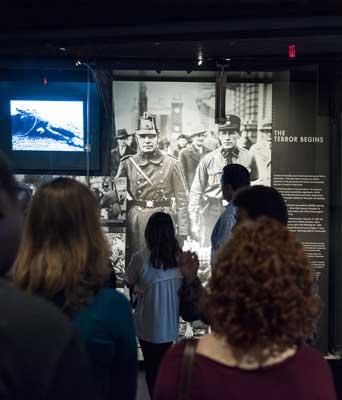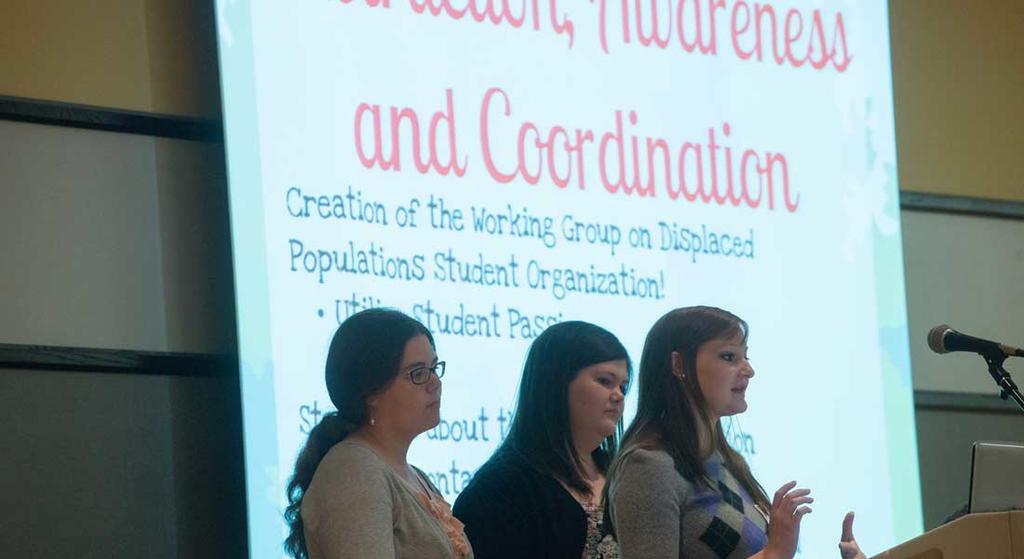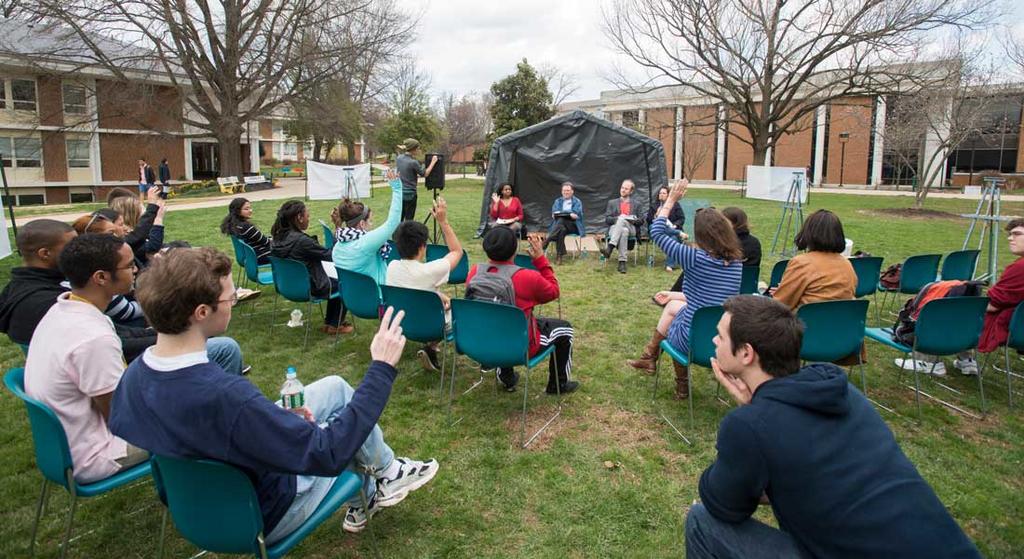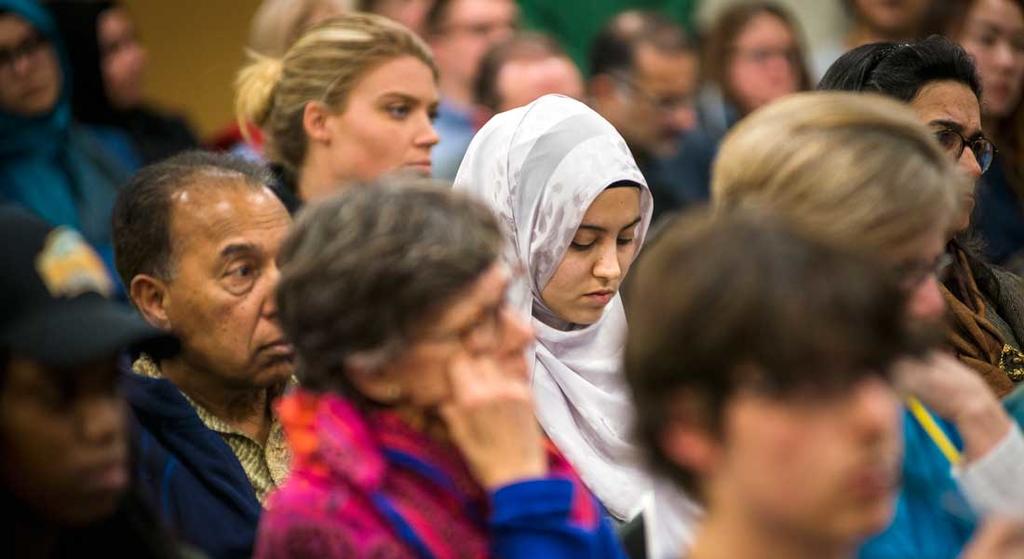The faculty, students, staff, alumni and partners of the Jimmy and Rosalynn Carter School for Peace and Conflict Resolution (formerly S-CAR) are part of a community dedicated to interrupting cycles of violence. Through theory, research, and practice, the Carter School serves as an innovative academic resource for people and institutions, both at home and worldwide.
Mission Statement
The Jimmy and Rosalynn Carter School for Peace and Conflict Resolution is a community of faculty, students, staff, alumni, and partners with a fundamental commitment to building peace. Through the development of cutting-edge theory, research, education, and practical work, we seek to identify and address the underlying causes of conflict and provide tools for ethical and just peacebuilding on the local, national, and global stages.
Value Statement
At the Carter School, we recognize that conflict and social injustice are complex problems with many root causes which require multiple disciplines and perspectives to successfully address.
Our students come to the Carter School to learn from the leaders in peace and conflict resolution. We teach our students to identify the underlying causes of conflict and equip them with the cutting-edge theory and practical skills to put their knowledge into action, whether that be at the local, national, or global level. We also impart a thorough understanding of the values that underly these practices. We understand that “how” is as important as “why.”
With a history spanning 40 years, the Carter School is a leading force in peace and conflict research by conducting an ongoing study of the nature, origins, and types of social conflicts and developing the requisite processes and conditions for the ethical and just resolution of conflict. In partnership with more than 2,000 influential alumni and partners across the world, the Carter School has built a network of change to transform the lives of those trapped in destructive cycles of violence and create a more peaceful and just global society.

Students from the Carter School take a tour of the Holocaust Museum in Washington, D.C. The nation's capital is rich in learning resources, while also being a hub for peace-building activities and policy building.
Why Change to the Carter School and What does this mean?
To understand why we became the Jimmy and Rosalynn Carter School for Peace and Conflict Resolution, you need to understand who we are.
We are a community of do-ers – academics, researchers, students, and alumni – who have dedicated ourselves to preventing conflict and building peace, while pursuing social justice, whether it be locally, nationally, or internationally.
The Carters were trailblazers in peace building and justice. For decades, they tirelessly walked in the shoes of the people with whom they worked and strived to empower, transforming countless lives in the process.
We have invested ourselves in the Carter name to honor their legacy of selfless dedication to peace and to encourage others to do likewise. Our transition to the Carter School is a declaration of our position and an affirmation that we, as a school, pursue a particular set of values: Compassion, humility, solidarity, a calling for social justice, and a commitment to peace.

Students present their work at the Carter School's annual Undergraduate Conference - Classroom to Community: Projects in Action. Our undergrads are expected to conduct serious research.

Carter School students participate in the "Windows From Prison" exhibition, a collaboration between Mark Strandquist, who attended Mason and is now a professor at the Corcoran College of Art and Design.

The Institute for Immigration Research with the Ali Vural Ak Center for Global Islamic Studies and the Carter School co-host a panel discussion, "Xenophobia and Islamophobia in the Modern Era."
